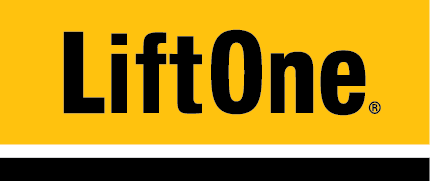The cost of equipment is one of the more expensive parts of running an industrial operation. Forklifts aren’t cheap — but fortunately, buying isn’t your only option. So how do you know when to buy vs. rent or lease a forklift? Each option has its advantages and drawbacks and may work better for some businesses than others.
Jump to Sections:
Buying a Forklift
Purchasing equipment is usually a good idea if you have the capital available and want to spend it creating owned assets for the company. Buying can also be a good choice if you need specialized equipment that rental providers might not have on-hand right away.
Some of the benefits of investing in a forklift include:
- Resale value.You can sell your forklift when you’re done with it.
- Tax deductions. Many businesses take advantage of tax benefits from purchasing equipment.
- The choice between new and used. You can save quite a bit with a used forklift.
- Few limitations. If a forklift gets damaged or you get a little lax on maintenance, you won’t see any extra penalties, since you own the equipment.
The major disadvantages of purchasing are:
- Maintenance costs. When figuring out how much it is to own a forklift, you’ll have to factor in maintenance needs.
- Higher upfront costs. Compared to renting or leasing, purchasing costs more initially.
How Much Is a Forklift?
The cost of buying forklifts varies widely depending on their construction. Forklift pricing factors can include the type of forklift it is, the kind of fuel used, the movement mechanism, the load capacity and many other aspects of the build.
Renting a Forklift
Renting a forklift is often a short-term solution, from a few days to several months. It’s a great choice for businesses that want to supplement their fleet during peak times, such as seasonal rushes, or try equipment before purchasing it. Renting can also come in handy during unexpected equipment breakdowns.
The benefits of renting a forklift include:
- Flexibility. You only pay for the forklift while you’re using it and can swap out models as needed.
- Short lead times. Specialty equipment aside, you can often get rental equipment very quickly.
- Easier budgeting. For many, this fixed cost is easier to budget for than a purchase — and you won’t have to worry about financing it.
- No maintenance. Typically, the rental company takes care of certain maintenance expenses.
The most significant disadvantage to renting a forklift is the cost. Is forklift rental expensive? Not particularly, but, you do typically pay a little more for the privilege of flexibility than you might on a financing arrangement for a purchased machine. Some providers, like LiftOne, even offer rental purchase options so you can still build equity with your rental.
Leasing a Forklift
Leasing a forklift is somewhere in between the two. It’s a great option for companies that want to reap the benefits of new equipment every few years without large capital investments.
The advantages of leasing a forklift include:
- Low initial costs. Leasing is more affordable than buying or renting if you don’t have a lot of extra cash lying around.
- New equipment. You can take advantage of new equipment with all the latest advances in technology, safety, and efficiency. Plus, you’ll know it’s well-maintained.
Disadvantages include:
- Higher costs over time. In the long term, leases tend to be more expensive than outright purchases.
- Limits on usage. If you exceed the hours of use allowed on your lease, you may face a penalty.
- No equity. While you use the equipment long-term, it is still not an owned asset for the company.
Making the Choice
There are many factors that go into deciding how you’ll acquire your next forklift, and each business is unique. If you’re not sure which is best for you, reach out to one of our representatives. We’re happy to talk over the options and help find the best solution for your business needs.










